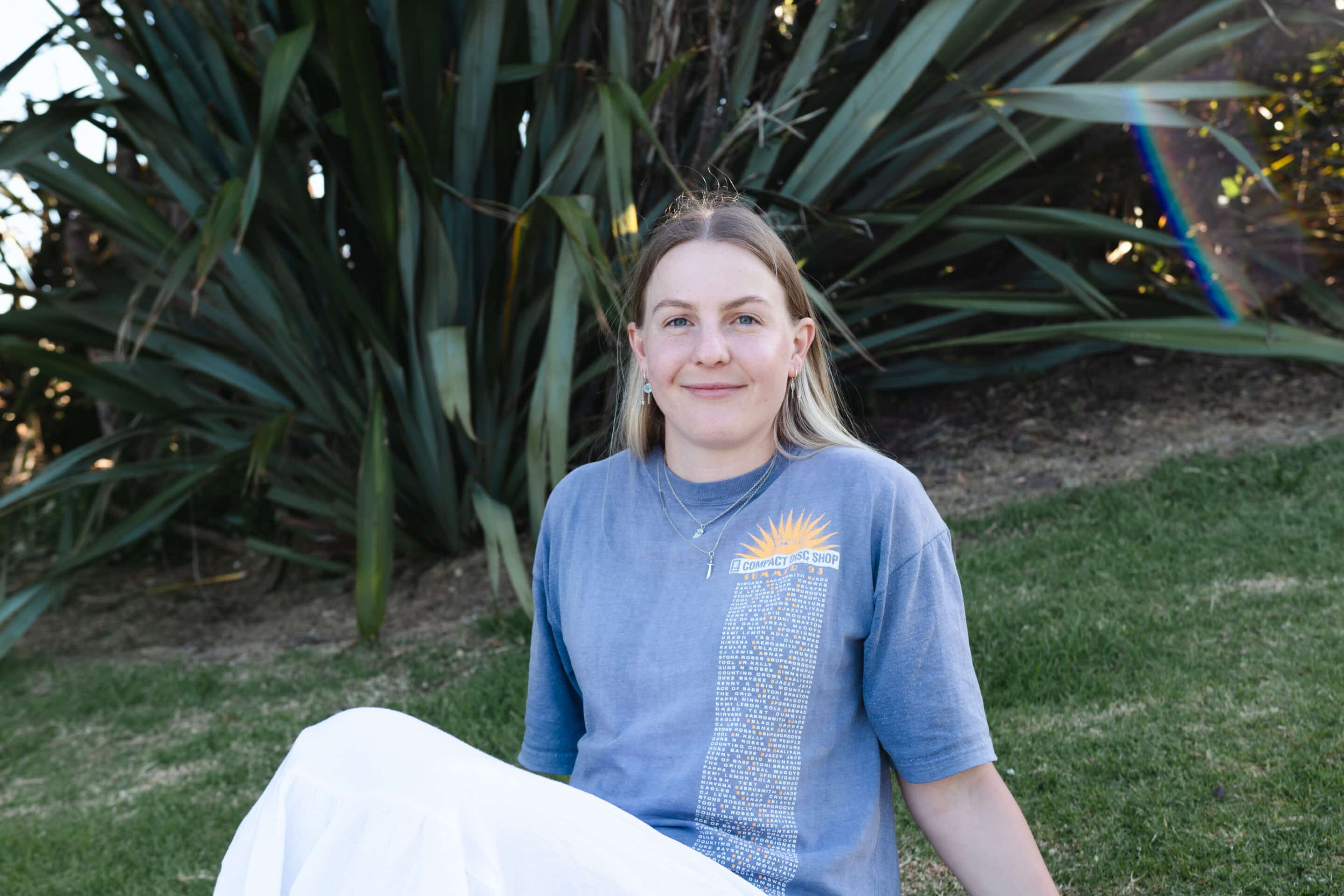At age 12, Anna Steven was diagnosed with osteosarcoma which then led to six months of chemotherapy and major surgery that led to the amputation of her leg. Despite experiencing symptoms for two years prior, Anna’s concerns were initially dismissed, “I probably had about two years where I had a sore foot and then kept bringing it up, but it wasn’t taken seriously because you’re a kid,” she recalls. Reflecting on her diagnosis, Anna shares, “Once I was diagnosed, I guess I was kind of anticipating like a one-off surgery and then you’re all good to go again.” However, the reality of cancer treatment quickly set in.
Facing decisions about fertility preservation at just 12 years old, Anna reflects on the weight of those choices. “At 12 you’re kind of like that’s a big deal… but at the same time like it’s not the end of the world if you can’t because there’s other methods to have kids,” she shares. Despite the challenges, Anna’s resilience shone through as she navigated treatment and recovery.
Recalling her treatment experience, Anna acknowledges the support of her family and friends as a lifeline. “What got me through… the support from my family was key,” she emphasises. “Knowing that you had a support system to lean on was invaluable.”
Throughout her treatment, Anna learned the importance of seeking help and finding comfort in supportive networks like Canteen. “Having people you trust and feel safe with is key,” she reflects. “Knowing you’re not alone in your experience can make a world of difference.”
Post-treatment, Anna found herself navigating the challenges of rehabilitation and adjusting to life with a prosthetic limb. “It’s a mix of grief and celebration,” she shares. “Losing a limb is a drastic change, but it’s also a victory over cancer.”
“The social support of my friends not treating me any different was cool. Through this I realised it’s not about the physical, it’s about knowing your heart and who you are and even as a young person too. I felt like I was in a team environment again and I thought that was really beneficial to my recovery. And like they made it fun as well, I would have someone that would steal my leg if I was changing my boots or whatever and so that would just bring a bit more fun to the situation rather than being awkward and walking on eggshells around you.”
Returning to normalcy was a gradual process for Anna, marked by milestones like walking unassisted and re-engaging in sports. “It’s about regaining a sense of self,” she says. “Finding joy in activities that make you feel alive is crucial for healing.” Once Anna first began to run again, she pursued a new dream of becoming a national-level Paralympic athlete to push her limits, but also inspire others living with a disability to get involved in sport. Since then Anna has competed in the Tokyo 2020 Paralympic Games and since this experience has stated she is “just getting started.”
“Do something that makes you feel alive”
Anna’s emotional journey taught her the importance of embracing all feelings, even the difficult ones. “It’s okay to feel sad or overwhelmed,” she reassures. “But reaching out for support and processing those emotions is key to moving forward.”
“And yeah, that journey of acceptance is still going. But it’s all right. You take it day by day. A perspective change can be helpful. But again, don’t try and force it. So if you want to feel sad about something, feel sad about it. But then just check in with yourself and once you’ve felt sad then begin to shift it to something more positive.”
Today, Anna continues to inspire others with her story. ”There’s strength in vulnerability,” she affirms. “Sharing experiences and learning from others can be incredibly empowering.”

